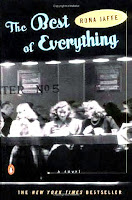 We had some friends from Winnipeg come to stay with us a couple of days ago. It marked another milestone in our house. We finally have an actual spare bedroom with an actual spare bed — a place for guests to rest their weary, travelled heads on comfy pillows and cozy sheets. It’s not that I’m not an adult, but I haven’t felt like one in quite some time living in our cramped, half-used house. But the more rooms that become finished and look beautiful (the living room; the dining room; half of the kitchen), the happier I am that we can use the upstairs for its actual intent.
We had some friends from Winnipeg come to stay with us a couple of days ago. It marked another milestone in our house. We finally have an actual spare bedroom with an actual spare bed — a place for guests to rest their weary, travelled heads on comfy pillows and cozy sheets. It’s not that I’m not an adult, but I haven’t felt like one in quite some time living in our cramped, half-used house. But the more rooms that become finished and look beautiful (the living room; the dining room; half of the kitchen), the happier I am that we can use the upstairs for its actual intent.
Okay /tangent.
We all went up to our cottage for an extended long weekend. Happily, I took a few days off because my body still wasn’t ready for a full week of work. I’m not convinced I am even now but again I’m writing in tangents instead of getting to the point. We spent a lovely day at the Petroglyphs Provincial Park, and even went hiking, which utterly killed me. So the following day, when everyone else was boating and cavorting, I sat down inside and out and read Rona Jaffe’s excellent The Best of Everything cover to cover.
The book was first published in 1958, and author Rona Jaffe based it somewhat on her own experiences as a young editor at Fawcett publications. The novel reads like Mad Men, only it’s from the perspective of four different women (somewhat complete with a less suave Don Draper-esque character in the senior editor, Mike Rice) who work at the publishing company. They all start off in the secretarial pool, and some remain there until they get married, then pregnant, and leave the story. While there are many women featured in the novel, there are four whose stories drive the majority of the action. Their stories intersect as their friendships do — sometimes accidentally, sometimes on purpose — but the skillful nature of Jaffe’s narrative never lets the threads drop that sew the entire story together.
Caroline, a young girl with an ivy league eductation, steps out of the subway from a long commute into Manhattan excited about her first job. She was to have been married to her college sweetheart who, after taking one last hurrah to Europe, found himself walking down the aisle with someone else. A career girl in the making, Caroline soon rises up the ranks to become a junior editor, but the road isn’t easy, and she simply can’t find the same kind of success in her personal life. Being beautiful, smart, and talented means that Caroline questions everything, and her story was the one that I found so heartbreaking by the end.
Then there’s April and Gregg, two aspiring actresses, the former whose wholesome, mid-Western roots don’t necessarily prepare her for the big city, and the latter who can’t help but make disasterous mistakes after she becomes involved with a powerful Broadway producer. The majority of their problems (read: all) come in the form of love affairs. April gets in over her head with a wealthy playboy and Gregg can’t seem to stop herself from troubling behaviour. The fourth and final woman Jaffe centres the novel around, Barbara, is a divorcee with a young child. She works hard to support her mother and her daughter, and struggles with the societal implications of divorce in the 1950s.
They are all flawed, fascinating and forgiving characters. They are women who search for meaning in a world where they’re just trying to find their footing. All four of them exist somewhat outside the “normal” women who sit beside them planning their weddings and having babies, even if that’s eventually what happens in their lives. The Best of Everything reminded me in tone and storytelling of Revolutionary Road, even of Jaffe’s not as exacting as Yates remains in his prose. It’s a product of its time, surely, so a realistic picture of the concerns of women from the time period, but the themes are so universal. Women dealing with sexual abuse, women defining themselves in the work place against men, women coping with the expectations of a relationship, love, and life. I can’t put into words what kind of an effect the novel had upon me — I just couldn’t put it down until I got to the very end, and even then, I didn’t want it to be over.
There’s a comparison to it being a kind of pre-Sex and the City. But I think that’s a glib comparison, more of a marketing pitch than a thoughtful critique. Sure there are similiarities that can’t be ignored in terms of their gender, and even their personalities, but these four women are compelling because they exist within these pages. They’re not driven by the weekly melodrama of a half-hour television series. They’re broken in ways that can’t be fixed. They’re complex in ways that can’t be quipped. And they have stayed in my mind, especially Caroline, since I finished reading.
Highly recommended. Thanks to Rachel again for telling me about this novel. Again, she’s a gem.






